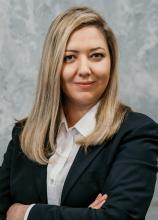ICAI Global Webinar: Impact of COVID-19 Pandemic on Reporting and Assurance



The COVID-19 pandemic is a global health and humanitarian crisis. Beyond the significant challenges that lay ahead in all facets of life, it also poses unprecedented risks to the world economy. The International Auditing and Assurance Standards Board (IAASB) and the International Ethics Standards Board for Accountants (IESBA) are committed to doing our part to support a strong global response.
IAASB and IESBA are committed to continuing our work, albeit virtually, and seizing opportunities to adapt how we work, and what we work on, considering global needs and priorities.
In the short-term, we have transitioned to fully digital platforms to execute day-to-day work, plenary meetings and stakeholder outreach. In addition, we are developing, or will consider commissioning and/or sourcing reference materials, as appropriate for each Board, to help our stakeholders continue their work. To that end, we will be creating web resources on each board’s website with COVID-19 related messages and materials.
We are coordinating with the Public Interest Oversight Board (PIOB), regulatory authorities, and national standard setters on our approach. We are also discussing with the PIOB the best way to balance timeliness and the very real operational constraints many stakeholders face. These discussions will consider our stakeholders’ ability to provide feedback according to existing timelines and whether flexibility is required.
We are adapting rapidly and trying to be sensitive to many difficulties. We will place a priority on remaining closely linked with all our stakeholders during these trying times and will continue to review our response, as we may not get it right the first time, and may need to adjust further as the global situation changes. The IAASB, IESBA, and their staff stand ready to help where and when possible.
We continue our work for the public interest. We understand the unprecedented crisis will bring unprecedented challenges. And we will meet them with a decisive and timely response.
The International Auditing and Assurance Standards Board (IAASB) published its Strategy for 2020‒2023 (the Strategy) and Work Plan for 2020‒2021 (the Work Plan) , this week (April 15, 2020). We have also signaled our sensitivity to the current circumstances created by the COVID-19 outbreak. The purpose of this note is to update stakeholders on the progress of support material under development and the evolution of our thinking on our Work Plan.
Staff Alerts under Development
A core element of our COVID-19 response is to develop Staff Alerts on several targeted topics to support the application of our standards under current circumstances. Our goal is to support the public interest and the role auditors must play in sustaining trust in financial and other external reporting. We are coordinating with others, such as National Standard Setters (NSS) and the International Federation of Accountants (IFAC) and its Professional Accountancy Organization (PAO) members, as well as engaging with regulators and oversight bodies.
In addition to the IAASB Staff Alert, Highlighting Areas of Focus in an Evolving Audit Environment Due to the Impact of COVID-19, we are drafting Staff Alerts on the following topics:
The Staff Alerts on Auditor Reporting and Going Concern will be issued next and are expected to be available within the next two weeks.
Work Plan
The IAASB is calibrating its efforts to account for COVID-19’s impact on our capacity to deliver, and the capacity of our stakeholders to absorb what we deliver. Our comprehensive review of our work program includes an assessment of priorities, upcoming Board meeting agendas, and timelines (e.g., consultation periods and effective dates). We are taking this through our internal processes as well as ensuring that we benefit from the input of the Public Interest Oversight Board (PIOB) and other key stakeholders. Changes will be communicated with the publishing of individual proposed or final pronouncements. We anticipate publishing revisions to the Work Plan on the IAASB website during the first half of May, after our consultations are complete.
We will continue to adapt our ways of working. The IAASB appreciates the immense constraints and pressure experienced by all. Our thinking about how we can best contribute to the broader financial reporting ecosystem at this time is evolving and we will continue to post updates on the IAASB Website.
Visit our COVID-19 Reource Page to learn more.

Chair of the IFAC PAO Development & Advisory Group
Bosnia and Herzegovina
Jelena Misita has served as Chair of the IFAC PAO Development & Advisory Group since January 2021. She is also a Board Member of the Union of Accountants, Auditors and Financial Workers of the Federation of Bosnia and Herzegovina (UAAFWFBH). In this capacity, and through her involvement in other global, regional, and national boards and organizations, she actively supports the advancement of the accountancy profession because of its vital role in building trust, fostering transparency, and creating opportunity in society.
With over 15 years of experience in developing Professional Accountancy Organizations (PAOs), Ms. Misita has led several initiatives to strengthen the profession in emerging economies where both strategic direction and practical support are essential for achieving high standards of professionalism and quality. She has contributed to numerous donor-funded reform programs and projects that aim to adopt best practices and serve the public interest.
Additionally, for more than two decades, Ms. Misita has served as the CEO at Revicon, a business advisory company focused on improving organizational performance and delivering strategic support to both public institutions and private enterprises.




Key IAASB Strategy and Work Plan Elements
The strategy sets three strategic objectives to focus IAASB priorities and resources during 2020‒2023: